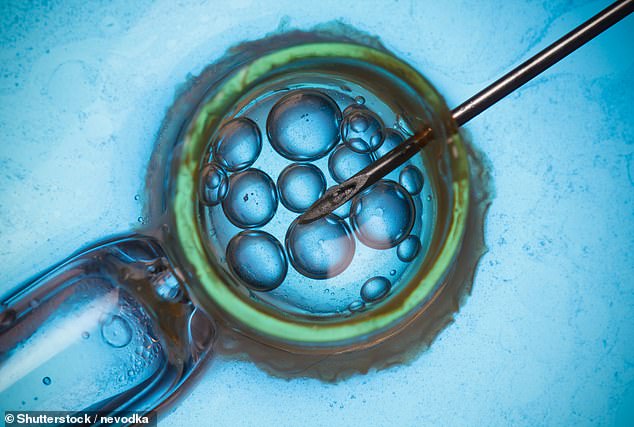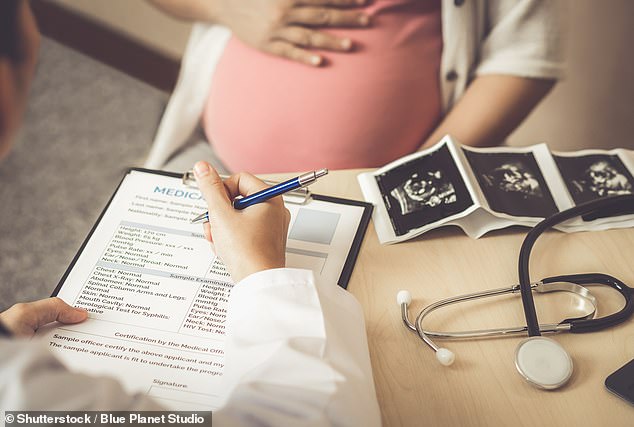Children conceived from donated eggs or sperm are more likely to have “trust issues” and “identity difficulties” than children of non-donated people, a study suggests.
Researchers at King’s College London, who examined data on 4,666 people conceived from donated genetic material, said the problems arose from the secrecy and anonymity surrounding parenthood.
However, they found that these individuals fared better if they were informed of their ancestry at a young age.
More than 70,000 donor-conceived people have been born in the UK since 1991, when modern records began, and a significant number were also born before this date.
However, little is known about the long-term psychological challenges they face as they grow up.
More than 70,000 donor-conceived people have been born in the UK since records began in 1991, with a significant number unknown before then.
But new research from King’s College has highlighted how adults conceived using donor eggs or sperm can suffer from the secrets of their parentage.
Some people only find out after taking a DNA or ancestry test, a revelation that can lead some people to discover they have many half-siblings from the same donor.
In some rare and surprising cases, some couples have discovered that they are actually related.
Under UK law, anyone conceived using donated genetic material has the right to obtain information about their donor, including their name and address at the time of donation, when they turn 18.
However, this only came into effect in 2005, meaning people conceived before then are not guaranteed to receive this information.
And although this legislation already exists, the decision of whether or not to tell a donor-conceived person the truth about their ancestry is entirely in the hands of the parents raising them.
The researchers’ review, published in the journal British Journal of Obstetrics and Gynaecologyanalyzed 50 studies on the mental well-being of both donor-conceived children and current adults.
In total, this involved 4,666 donor-conceived individuals, mostly from high-income, English-speaking countries.
The researchers found that most studies showed that donor-conceived children had higher or equivalent scores on well-being, self-esteem and warmth in relationships with their non-donor children.
The study’s lead author, Professor Susan Bewley, an expert in women’s health, said this could be because children conceived through donation are always born to families who wanted them.
“Donor-conceived children are always planned and desired, as one or more of their parents may have had fertility problems,” she said.
“This could explain better relationships with their family and greater well-being.”
But on the other hand, the study found that donor-conceived people were at higher risk of experiencing problems resulting from “feeling cheated, having difficulty forming their identity and lacking support to help them access information about their origins.”

The study found that children had better physiological health if they were told they had been conceived through donation at an earlier age. However, there is no legal obligation for families to tell their children the truth about their genetic lineage.
These could manifest in a number of ways, including addiction problems, ADHD, mental health issues, disruptive behavior and identity issues, the researchers said.
Dr Charlotte Talbot, another author of the study and an expert in women’s health, said: “This is the largest body of evidence we have on the well-being of donor-conceived children and adults, but it is a complicated picture.
She added: “While most outcomes are equal or better for this group than for people conceived without donors, qualitative studies revealed common themes related to mistrust and concerns about genetic inheritance.”
However, the authors found that donor-conceived individuals tended to handle these issues much better if they were told the truth at an early age.
Laura Bridgens, founder of the charity Donor Conceived UK (DCUK), said: “The government and the fertility industry have a duty to listen to the voices of donor-conceived adults to create a future where the intervention of the charity sector is not needed to right the wrongs of the past.”
The authors said doctors working with prospective parents who are thinking of conceiving through a sperm or egg donor should inform them of the challenges that people conceived this way may experience and encourage them to disclose their origins early.
The researchers added that because the studies they used came primarily from high-income, English-speaking countries, the results might not be applicable to other communities.


